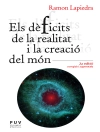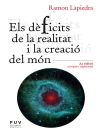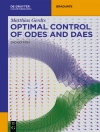Note to the interested reader to have a look at the companion to this volume Challenges for Sciences and Communication I | ISBN: 978-3-031-28048-1.
This highly interdisciplinary volume brings together a carefully curated set of case studies examining complex systems with multiple time scales (MTS) across a variety of fields: materials science, epidemiology, cell physiology, mathematics, climatology, energy transition planning, ecology, economics, sociology, history, and cultural studies. The book addresses the vast diversity of interacting processes underlying the behaviour of different complex systems, highlighting the multiplicity of characteristic time scales that are a common feature of many and showcases a rich variety of methodologies across disciplinary boundaries.
Self-organizing, out-of-equilibrium, ever-evolving systems are ubiquitous in the natural and social world. Examples include the climate, ecosystems, living cells, epidemics, the human brain, and many socio-economic systems across history. Their dynamical behaviour poses great challenges in the pressing context of the climate crisis, since they may involve nonlinearities, feedback loops, and the emergence of spatial-temporal patterns, portrayed by resilience or instability, plasticity or rigidity; bifurcations, thresholds and tipping points; burst-in excitation or slow relaxation, and worlds of other asymptotic behaviour, hysteresis, and resistance to change.
Chapters can be read individually by the reader with special interest in such behaviours of particular complex systems or in specific disciplinary perspectives. Read together, however, the case studies, opinion pieces, and meta-studies on MTS systems presented and analysed here combine to give the reader insights that are more than the sum of the book’s individual chapters, as surprising similarities become apparent in seemingly disparate and unconnected systems. MTS systems call into question naïve perceptionsof time and complexity, moving beyond conventional ways of description, analysis, understanding, modelling, numerical prediction, and prescription of the world around us.
This edited collection presents new ways of forecasting, introduces new means of control, and – perhaps as the most demanding task – it singles out a sustainable description of an MTS system under observation, offering a more nuanced interpretation of the floods of quantitative data and images made available by high- and low-frequency measurement tools in our unprecedented era of information flows.Inhaltsverzeichnis
Foreword.- Preface.- Index Gratiarum.- Table of Contents I.-Part IV. Anthroposphere (human focus): History, Anthropology, Archaeology, Music Theory and Literature Analysis, Economics, Regional and Global Inequality.- Multiple time scales in history: Clashing concerns? (M. Van De Mieroop).- Military-industrial interactions in and between Germany and the United States: Combining spatial and time scales (R. Czeskleba-Dupont).- Urgency across cultural timescapes informs climate change vulnerability (S. Veland, A.H. Lynch).- Some comments on multi-scalar time in archaeology (R. Campbell, Y. Jaffe).- Complexity and time scales in music theory and literary analysis (P.A. Brask).- Timescales methods in economics: Wavelet analysis of business cycle fluctuations (M. Gallegati).- Macro-Financial Dynamics: Theories, Empirical Methods, and Time Scales (C. Proaño, L. Quero Virla).- Portfolio decisions, climate-related assets and commodity prices: An application of time scales and dynamicportfolio model (J. Braga, J.P. Bastos).- A multi time-scale theory of economic growth and cycles (J. Jacobo).- Endogenous economic resilience, loss of resilience, persistent cycles, multiple attractors (W. Semmler et al.).- Part V. Multiple Time Scales: Dynamics, Emergence, and Physical Generation.- A review of multiple time scale dynamics: Fundamental phenomena and mathematical methods (K.U. Kristiansen).- Emergence of multiple time scales in the modelling of climate, matter, life, and economy (B. Booß-Bavnbek et al.).- Coexisting dynamical phenomena with different time scales in autonomous systems: How their generation and combination may occur? (G. Orriols et al.).
Über den Autor
Bernhelm Booß-Bavnbek is Emeritus in the Department of Science and Environment at Roskilde University in Denmark.
Jens Hesselbjerg Christensen is professor in the Department of Physic, Ice, Climate and Earth; Niels Bohr Institute, University of Copenhagen
Katherine Richardson is professor at the Department of Macroecology, Evolution, and Climate at Copenhagen University in Denmark.
Oriol Vallès Codina is research fellow at Leeds University Business School, UK.












